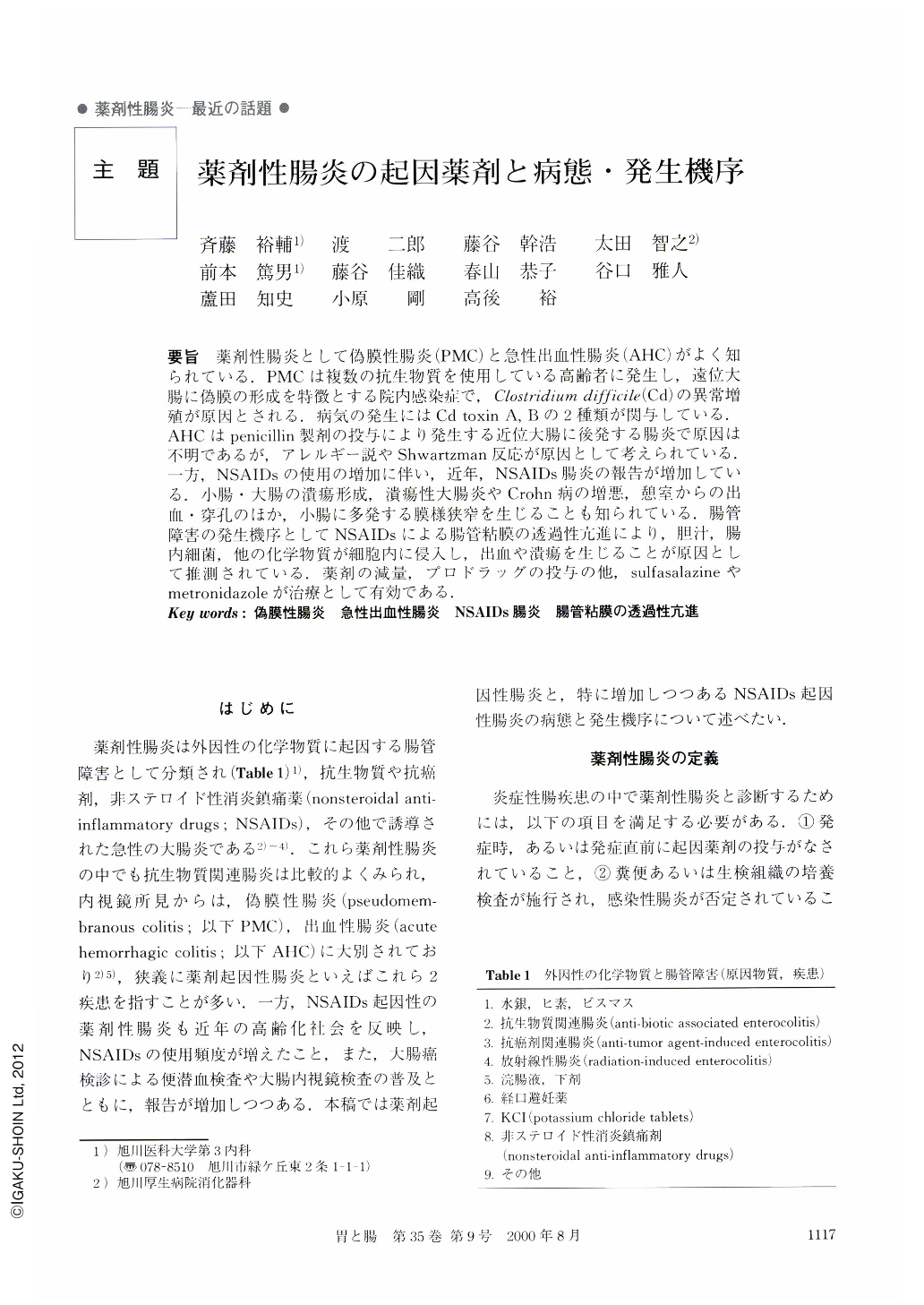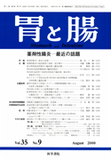Japanese
English
- 有料閲覧
- Abstract 文献概要
- 1ページ目 Look Inside
- サイト内被引用 Cited by
要旨 薬剤性腸炎として偽膜性腸炎(PMC)と急性出血性腸炎(AHC)がよく知られている.PMCは複数の抗生物質を使用している高齢者に発生し,遠位大腸に偽膜の形成を特徴とする院内感染症で,Clostridium difficile(Cd)の異常増殖が原因とされる.病気の発生にはCd toxin A,Bの2種類が関与している.AHCはpenicillin製剤の投与により発生する近位大腸に後発する腸炎で原因は不明であるが,アレルギー説やShwartzman反応が原因として考えられている.一方,NSAIDsの使用の増加に伴い,近年,NSAIDs腸炎の報告が増加している。小腸・大腸の潰瘍形成,潰瘍性大腸炎やCrohn病の増悪,憩室からの出血・穿孔のほか,小腸に多発する膜様狭窄を生じることも知られている.腸管障害の発生機序としてNSAIDsによる腸管粘膜の透過性亢進により,胆汁,腸内細菌,他の化学物質が細胞内に侵入し,出血や潰瘍を生じることが原因として推測されている.薬剤の減量,プロドラッグの投与の他,sulfasalazineやmetronidazoleが治療として有効である.
It is well known that pseudomembranous colitis (PMC) and acute hemorrhagic colitis (AHC) are classified as representative of drug associated colitis. PMC is populary detected in elder patients who have been administrated multiple antibiotics and it is characterized by pseudomembrane in the distal colon and the rectum. The changes of intra-intestinal normal flora by antibiotic administration causes an increase of Clostridium difficile and its toxin A and B cause PMC. AHC is another type of colitis that is characterized by segmental mucosal friability and multiple erosions in the proximal colon. The cause of AHC is still unknown but it is suggested that allergic reaction or local cytokine activation (Shwartsman reaction) causes mucosal injury. Recently, more cases of enteropathy caused by nonsteroidal antiinflammatory drugs (NSAIDs) are reported with the increasing use of NSAIDs. It is reported that many kinds of NSAIDs causes enterocolitis, entero-colonic ulcers, reactivation of ulcerative colitis or Crohn's disease. Moreover, there are a couple of reports of small intestinal diaphragm-like stricture caused by NSAIDs. It is characterized by multiple diaphragm-like or pinhole-like strictures with slight submucosal fibrosis in the middle part of the small intestine and preoperative diagnosis is difficult. The precise mechanism of these intestinal injuries by NSAIDs is still unclear but it is suggested that intestinal mucosal damage is caused by increased intestinal permeability. Absorbed NSAIDs increase mucosal permeability and break the intestinal barrier. Reflux of bile acid, intraluminal bacteria and other chemical agents penetrate epithelial cells and finally make intestinal erosions or ulcers. NSAIDs prodrug or a decrease of the dose of NSAIDs would be one method to prevent mucosal damage. Sulfasalazine or metronidazole are effective for curing mucosal damage.

Copyright © 2000, Igaku-Shoin Ltd. All rights reserved.


